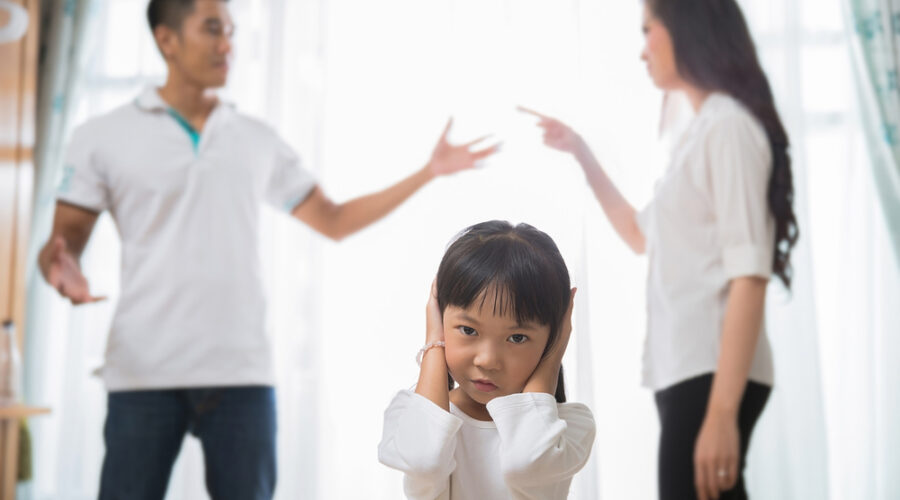
As parents, there is a shared responsibility for children. Courts in Hong Kong encourage a shared duty towards raising children and, where practicable, for parties to try to communicate with one other and make every effort to agree how their children will be raised.
It is the law that a child has a right to regular personal contact with both parents unless there is a very good reason to the contrary (for instance, the Court may deny contact if it is satisfied that the child’s safety is at risk). Denial of contact is very unusual and in most cases contact will be frequent and substantial.
Experience suggests that Court imposed orders are not as effective as agreements voluntarily made between parents. It’s always highly beneficial, for both the children and their parents, if a shared parenting approach can be adopted. This allows for continued communication and cooperation in the parenting of the children to facilitate a healthy and balanced environment for the children’s development.
An agreement may take time to figure out, but the assistance of legal advisors, mediators or social workers, can usually facilitate open dialogue between parties and greatly help parties to reach a workable arrangement in the end.
If the matter cannot be agreed and must go to Court, then it is important for the parties to know that, generally speaking, in all matters relating to children in family proceedings, the welfare of the child/children is the first and paramount consideration of the Court.
While the ultimate decision in each case will depend on its own facts, the Court will be generally mindful of the following factors:
1. the preservation of the status quo;
2. the ages of the parents and child;
3. the personality, capability and character of the parents;
4. the financial resources of the parents;
5. the physical and mental health of the parents and child;
6. the accommodation available to the child;
7. the child’s own wishes and views, if any;
8. the benefit of keeping the siblings together with one parent;
9. the religion and culture of the family;
10. professional reports such as medical, school, or court welfare officer’s reports (e.g. about the child’s family relationship, living conditions, mental or health elements, etc.).
Custody, Care And Control, Access And Supervised Access
Court orders with respect to the children of the family will involve granting ‘custody’ ‘care and control’ to one or both of the parents, and perhaps also deal with access/supervised access depending on the facts of the case.
Custody refers to the right of a parent to make the larger decisions in a child’s life, e.g. their education, their healthcare, their religion.
Care And Control generally means the more mundane, day-to-day care of the child, e.g. what they eat, what they wear, etc. The child will live with the parent to whom care and control is granted.
It is common for the Court to order joint custody (i.e. both parents have custody of the child) with care and control to one parent. Under this order, both parents are the decision makers for the major decisions concerning the child. Hence both parents should communicate with one another and reach a consensus when making key decisions. This gives them an equal say in the upbringing of the child, although the child may reside primarily with one parent the majority of the time.
It is to be emphasized, however, that even if only one parent is given custody, that parent is not thereby given an absolute and independent authority to act without further reference to or input from the non-custodial parent. A non-custodial parent has the right to be consulted in respect of all matters of consequence that relate to the child’s/children’s upbringing. While the right to be consulted does not include a power of veto, it is nevertheless a substantial right. It is not merely a right to be informed, it is a right to be able to confer on the matter in issue, to give advice and to have that advice considered.
Access may be given in lieu of care and control. It allows the parent to whom care and control is not granted to spend a certain amount of time with the child. This may be supervised by a third party or not, depending on the decision of the Court. The amount of time may be stipulated with whatever degree of particularity (i.e. liberal or reasonable access, which is fairly open ended, or access specified down to the number of hours on a particular day of the week), the Court may feel necessary, depending on the circumstances of the case.
Ultimately, the Court will look to the welfare and best interests of the child in determining the amount of access time to be given if the same cannot be agreed between parties. Examples of access periods include weekday access, weekend access, school holiday access and public holiday access.
Ideally, it is best if there can be both joint custody and shared care and control between parties, but the Court will only make this order if it feels it is in the best interests of the children. A high level of cooperation is necessary for a joint custody and shared care and control order to work. The Court is therefore unlikely to grant an order for shared care and control if the divorce is extremely acrimonious and the parties cannot cooperate.
If the parties have joint custody and shared care and control, Parent A may have care of the child/children from Monday – Thursday (i.e. the child/children would reside with Parent A on those days), and Parent B would have care and control of the child/children from Friday – Sunday.
If the parties want to change arrangements involving the children, make sure the other parent agrees. If you cannot agree, go to mediation or try to use a parental coordinator. The final option is Court.
If there is a Court order in place, parties must do what the Court order says, even if they don’t agree with it. If the parties want change the arrangement prescribed in the Court order and cannot agree to do so between themselves outside of Court, then they must apply to the Court to have the order varied or discharged.
Be sure to speak with your solicitor on issues related to children so there is no confusion and you make the most informed decision for you and your family.










